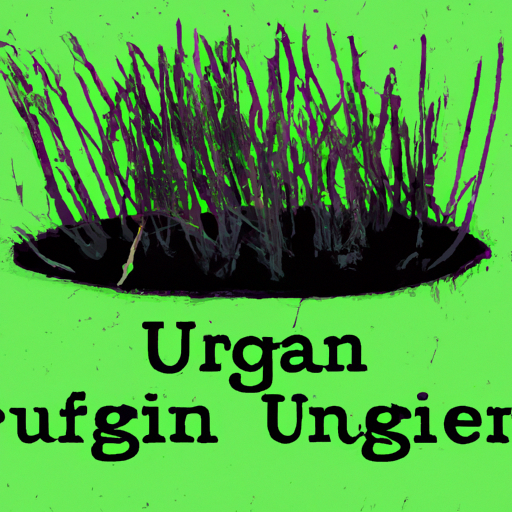
Imagine a world where every student had the opportunity to learn about sustainable agriculture and contribute to the growth of their communities. In an effort to bring this vision to life, an innovative urban farming curriculum has been developed. This curriculum not only teaches students about the importance of sustainable farming practices, but also empowers them to become active participants in the creation of a more sustainable future. Through hands-on learning experiences, students will cultivate their own urban gardens, learning valuable skills while making a positive impact on their local environment. Join us as we explore the exciting journey of implementing a sustainable urban farming curriculum and the transformative impact it holds for students and communities alike.

Sustainable Urban Farming Curriculum
Welcome to the Sustainable Urban Farming Curriculum! In this comprehensive article, we will provide you with an overview of the curriculum, including the goal and objectives, target audience, and course format. We will also delve into each module and explore the content covered in detail. So, let’s get started!
Curriculum Overview
The Sustainable Urban Farming Curriculum is designed to equip individuals with the knowledge and skills necessary to engage in urban farming practices that are environmentally sustainable and economically viable. This curriculum comprises ten modules, each focusing on a different aspect of urban farming. From introductory concepts to advanced techniques and strategies, participants will gain a holistic understanding of sustainable urban agriculture.
Goal and Objectives
The goal of the Sustainable Urban Farming Curriculum is to provide individuals with the necessary knowledge, skills, and mindset to successfully practice sustainable urban farming. The curriculum aims to educate learners on the importance and benefits of urban farming while also equipping them with the practical techniques and strategies needed to establish and maintain their own urban farms. By the end of the curriculum, participants should be able to design, implement, and manage sustainable urban farming systems effectively.
Target Audience
The Sustainable Urban Farming Curriculum is designed for a diverse range of individuals interested in sustainable urban agriculture. Whether you are a beginner seeking to learn about urban farming or an experienced farmer looking to adopt more sustainable practices, this curriculum caters to all. The target audience may include aspiring urban farmers, homeowners with limited space, community garden organizers, educators, policymakers, and anyone passionate about sustainable food production in urban environments.
Course Format
The course is formatted as a self-paced online learning experience, allowing participants to progress through the modules at their own convenience. Each module consists of video lessons, interactive quizzes, readings, and practical assignments to enhance learning. In addition, participants will have the opportunity to engage in discussions with instructors and fellow learners through an online forum. The course is designed to be accessible and flexible, accommodating the varying schedules and learning styles of participants.

Module 1: Introduction to Urban Farming
Importance of Urban Farming
The first module introduces learners to the concept of urban farming and highlights its significance in today’s world. Participants will explore the various reasons why urban farming is crucial, such as addressing food security challenges, promoting sustainable food systems, mitigating climate change, and fostering community resilience. By understanding the importance of urban farming, individuals can advocate for its expansion and contribute to building a more sustainable future.
Benefits of Sustainable Urban Farming
In this section, participants will learn about the numerous benefits of sustainable urban farming. Beyond producing fresh, nutritious food, urban farming offers various social, economic, and environmental advantages. Participants will explore how urban farming can mitigate urban heat island effect, improve air quality, promote biodiversity, strengthen community bonds, create local job opportunities, and contribute to the local economy. By recognizing these benefits, individuals can make informed decisions and support sustainable urban farming initiatives.
Urban Farming Practices
This subsection provides an overview of the different urban farming practices. Participants will learn about the various methods used in urban agriculture, including rooftop farming, community gardens, vertical farming, hydroponics, and aquaponics. Each farming practice is explained in detail, highlighting its advantages, challenges, and potential applications. This section aims to familiarize individuals with the diverse range of urban farming practices available and inspire them to explore and implement these techniques.
Case Studies
To illustrate the real-world applications of urban farming, this module includes case studies of successful urban farming projects from around the world. Participants will dive into inspiring examples of urban farms that have overcome challenges and achieved remarkable outcomes. These case studies cover a wide range of urban farming models, including commercial urban farms, community-based initiatives, and educational programs. By analyzing these case studies, participants can gain valuable insights and learn from the experiences of successful urban farmers.

Module 2: Urban Farming Techniques
Soil Management
In this module, participants will learn about the vital importance of soil management in urban farming. The section covers topics such as soil composition, soil testing, soil amendments, and soil fertility. Participants will explore various techniques to improve soil health and maximize plant growth, including composting, vermiculture, and cover cropping. By understanding the principles of soil management, individuals can create and maintain fertile, nutrient-rich soils for their urban farms.
Crop Selection and Rotation
Selecting appropriate crops and implementing effective crop rotation strategies are critical aspects of sustainable urban farming. This section provides participants with the knowledge and tools necessary to make informed decisions regarding crop selection and rotation. Participants will learn about the different factors to consider when choosing crops, such as climate, soil conditions, market demand, and personal preferences. Additionally, they will explore the importance of crop rotation in pest and disease management and enhancing soil fertility. By implementing sound crop selection and rotation practices, participants can maximize the productivity and sustainability of their urban farms.
Water Conservation
Water conservation is a crucial consideration in urban farming, particularly in areas with limited water resources. In this module, participants will learn about various water conservation techniques applicable to urban agriculture. Topics covered include rainwater harvesting, drip irrigation, mulching, and efficient watering practices. Participants will also explore strategies to minimize water loss and optimize water usage. By adopting these water conservation practices, participants can reduce their environmental impact and ensure the long-term viability of their urban farms.
Integrated Pest Management
Effectively managing pests and diseases is essential for sustainable urban farming. This section introduces participants to the concept of integrated pest management (IPM) and provides practical strategies for pest control in urban agricultural settings. Participants will learn about preventive measures, such as crop diversity and companion planting, as well as cultural, biological, and chemical control methods. The objective is to empower individuals to address pest and disease challenges in a sustainable and eco-friendly manner, minimizing the use of pesticides and promoting biological diversity on their urban farms.







